vzAny and Multi-Site
The vzAny managed object provides a convenient way of associating all
endpoint groups (EPGs) in a Virtual Routing and Forwarding (VRF) instance to one or more
contracts, instead of creating a separate contract relation for each EPG.
In the Cisco ACI fabric, EPGs can only communicate with other EPGs according to contract rules. A relationship between an EPG and a contract specifies whether the EPG provides the communications defined by the contract rules, consumes them, or both. By dynamically applying contract rules to all EPGs in a VRF, vzAny automates the process of configuring EPG contract relationships. Whenever a new EPG is added to a VRF, vzAny contract rules automatically apply. The vzAny one-to-all EPG relationship is the most efficient way of applying contract rules to all EPGs in a VRF.
 Note |
External EPGs that are associated with L3Outs and are part of a VRF are also included in the vzAny logical group. |
Advantages
Policy information in Cisco ACI is programmed in the fabric switches' TCAM tables. TCAM entries are typically specific to each pair of EPGs that are allowed to communicate with each other via a Contract. This means that even if the same contract is re-used, multiple TCAM entries are created for every pair of EPGs.
The size of the policy TCAM table depends on the generation of the switches that you are using. In certain large scale environments it is important to take policy TCAM usage into account and ensure that the limits are not exceeded.
vzAny allows you to combine all EPGs within the same VRF into a single "group" and create a contract relationship with that group rather than individual EPGs within it, while consuming only a single TCAM entry. This saves the time you would otherwise spend creating multiple contract relationships for individual EPGs in the VRF as well as the TCAM space.
Use Cases
There are two typical use cases for vzAny:
-
Free communication between EPGs within the same VRF, as described in Free Intra-VRF Communication.
-
Many-to-one communication allowing all EPGs within the same VRF to consume a shared service from a single EPG, as described in more detail in Many-to-One Communication.
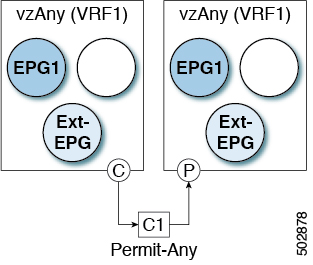
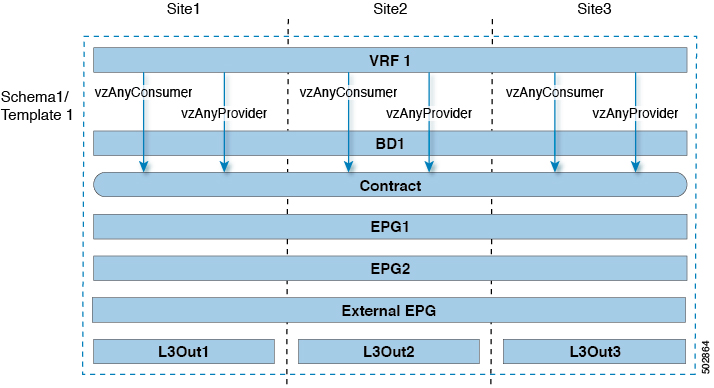
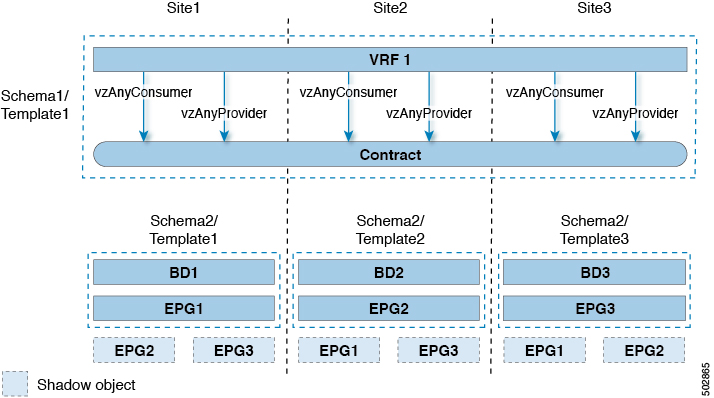
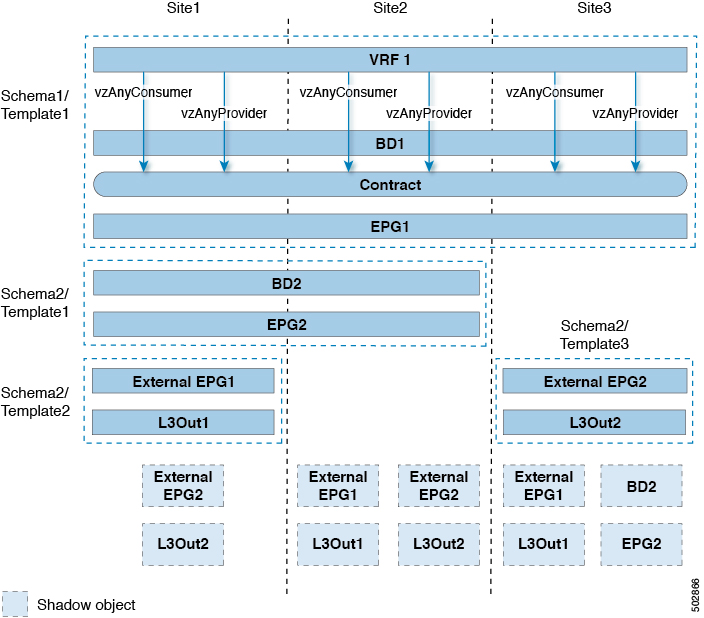
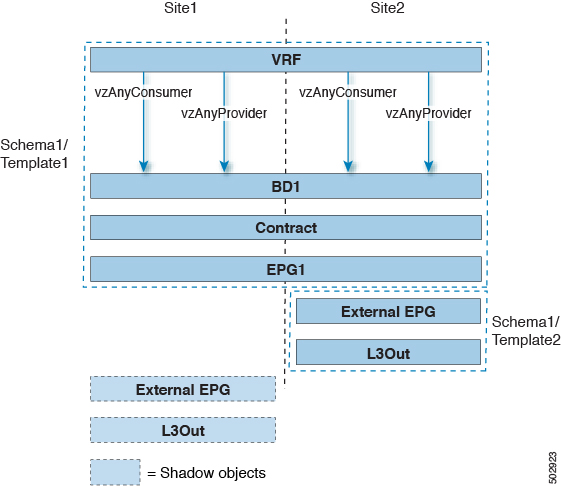
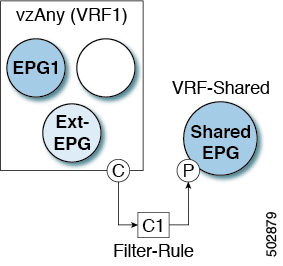
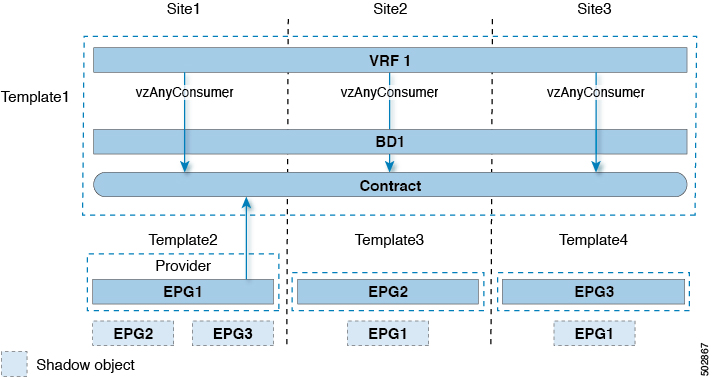
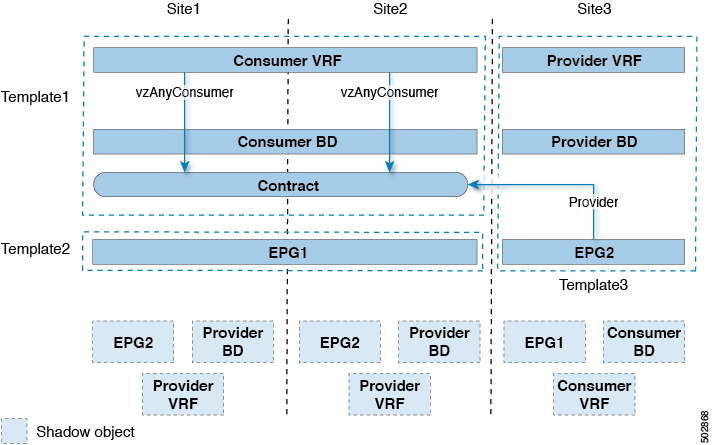
 Feedback
Feedback